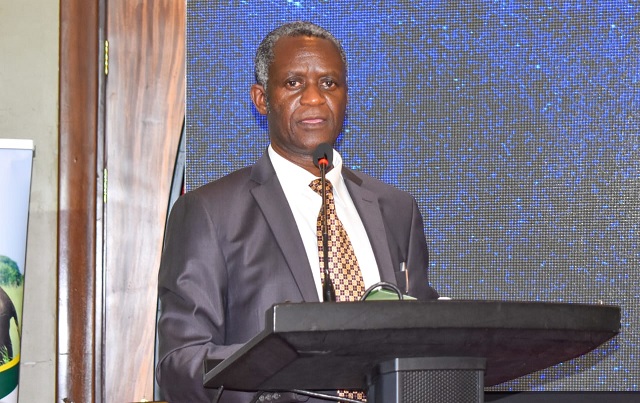
Kampala, Uganda | THE INDEPENDENT | The government has tasked the new Uganda Wildlife Authority (UWA) board of trustees to double the Authority’s revenue collections to Shillings 200 billion. Comprising ten dedicated individuals, this board not only plays a pivotal role in advancing the development of the Authority but also oversees and supervises its activities.
The board is entrusted with devising strategies to maximize revenue collection, providing essential direction to the management team, and offering invaluable policy guidance to shape the authority’s actions and decisions.
During the inauguration of the new board, which will preside over the authority for the next three years, Tom Butime, the Minister for Tourism, Wildlife, and Antiquities, highlighted the remarkable achievement of UWA’s revenue collections surpassing pre-COVID-19 levels as the economy emerged from lockdown.
He emphasized the paramount goal of this new board: achieving revenue collection exceeding 200 billion Shillings. Minister Butime underscored that realizing this ambitious target is feasible through a variety of strategies, including diversifying UWA’s products, enhancing service delivery, and plugging revenue leakage points.
He further emphasized the urgency of infrastructural development, particularly in terms of ranger accommodation. UWA recently recruited 855 rangers, exacerbating the existing shortage of staff accommodation. “Our protected areas necessitate additional infrastructure development, encompassing roads, gates, student centers, offices, tourist accommodations, and related facilities. These should constitute your annual priorities to effect substantial change,” Minister Butime stated.
While acknowledging that wildlife poaching and illegal wildlife trade have been contained, Minister Butime directed the new board to intensify efforts to eradicate these issues, with a specific focus on bolstering the lion population. He also highlighted the significant costs incurred by the government and the authority due to delayed responses to reported cases of human-wildlife conflicts, instructing the new board to expedite the compensation processes.
In his acceptance speech, James Kalema, the newly appointed board chairperson, conveyed his deep understanding of the emerging challenges in wildlife conservation within the country’s protected areas. He emphasized the board’s commitment to distributing various tourism products across different protected areas to ensure equitable access.
Outgoing board chairperson, Pantaleoni Kasoma, advised the new board to prepare for substantial challenges, particularly regarding inadequate funding for managing protected areas. He encouraged them to leverage emerging conservation funding sources.
Despite the UWA budget ceiling increasing from Shillings 106 billion to Shillings 124 billion, Kasoma pointed out that numerous unfunded priorities had hindered the authority’s performance. He also highlighted the threat posed by invasive species in many protected areas, calling for a multispectral approach to address this conservation challenge.
The government’s aspiration to double UWA’s revenue collection to Shillings 200 billion signifies both economic progress and a commitment to wildlife conservation. This represents a promising path toward safeguarding wildlife and fostering economic prosperity.
*****
URN
 The Independent Uganda: You get the Truth we Pay the Price
The Independent Uganda: You get the Truth we Pay the Price





